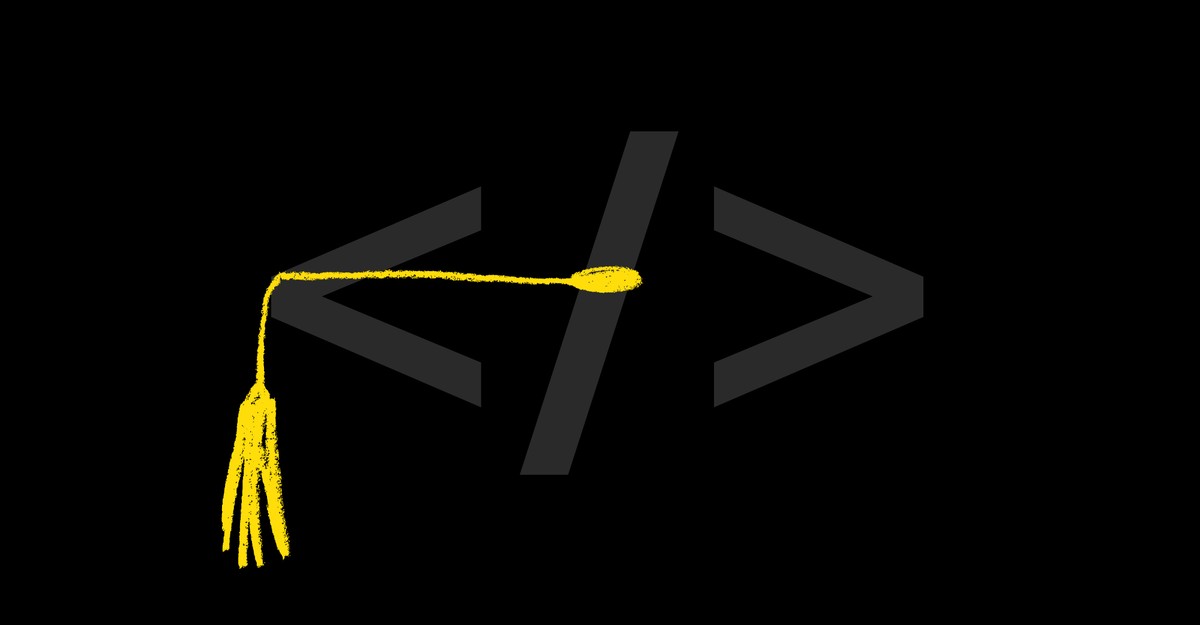Perhaps nothing has defined higher education over the past two decades more than the rise of computer science and STEM. Since 2016, enrollment in undergraduate computer-science programs has increased nearly 49 percent. Meanwhile, humanities enrollments across the United States have withered at a clip—in some cases, shrinking entire departments to nonexistence.
But that was before the age of generative AI. ChatGPT and other chatbots can do more than compose full essays in an instant; they can also write lines of code in any number of programming languages. You can’t just type make me a video game into ChatGPT and get something that’s playable on the other end, but many programmers have now developed rudimentary smartphone apps coded by AI. In the ultimate irony, software engineers helped create AI, and now they are the American workers who think it will have the biggest impact on their livelihoods, according to a new survey from Pew Research Center. So much for learning to code.
Fiddling with the computer-science curriculum still might not be enough to maintain coding’s spot at the top of the higher-education hierarchy. “Prompt engineering,” which entails feeding phrases to large language models to make their responses more human-sounding, has already surfaced as a lucrative job option—and one perhaps better suited to English majors than computer-science grads.
The potential decline of “learn to code” doesn’t mean that the technologists are doomed to become the authors of their own obsolescence, nor that the English majors were right all along (I wish). Rather, the turmoil presented by AI could signal that exactly what students decide to major in is less important than an ability to think conceptually about the various problems that technology could help us solve.



Oh, I think it will cause a reduction in jobs - at least compared to if it had not existed. So did interpreted languages, shell scripting, web frameworks, code-generation templates, the dot-com bust, and the 2008 recession.
Some folks are convinced that reduction is happening this year. I’ve written my share of LLMs and ML code, and I assure you it will not be next year.
The hallucination problem is being dramatically downplayed by the sales people, but reality tends to sort that stuff out.
Over the longer term, there’s a feeling among developers that this job is going to both stop sucking so badly, and stop paying so well. I also believe that is coming. But not this year or next.
If anything, we look forward to quite a bit of additional pain and money to clean up after all the all-in-on-day-one AI mistakes being made right now.
After that mess is sorted, a few of us should be able to retire, and a bunch of the rest can switch to part time.
Edit: A key thing folks don’t recognize about the in-progress AI revolution is that programming isn’t a slow job, before the AI.
Programming is a minefield of preventable mistakes, botched deployments, subtle mistakes, outright security nightmare mistakes, and misunderstood user requests.
The programmer shortage is not because we’re all tired of typing so many lines of code, or even of copy/pasting from Stack Overflow, and we just need more of us to do all that lovely typing and pasting.
The programmer shortage is because this job is a minefield of stressful surprises, and we have a high attrition rate.
AI can and will help. But anyone betting on AI as a full replacement in the short run is woefully ignorant of the steep challenges faced by the entire field of programming.
I never meant to imply, like the attached article, that this is all happening soon. It doesn’t have to happen soon to upend decades long careers.
I’m sure AI will help at first. That’s the point with something like this. Get people using it so you can continue to improve it to the point where you don’t need the people.
Same thing happened with the loggers. Oh this equipment can’t replace a person. It’s just here to make a hard job easier. No. No. No it’s not the equipment taking your job away. It’s that damn spotted owl taking your job.
That kind of makes me wonder in the decades ahead what will be the spotted owl when programmers start getting replaced.